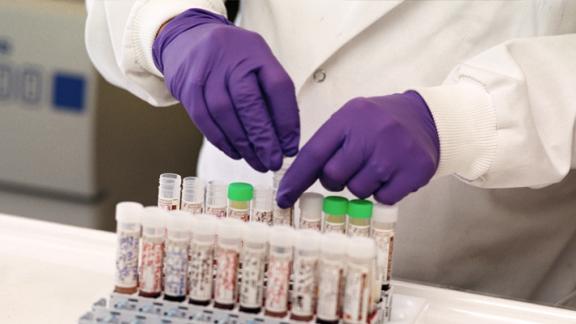Clinical trials

The new EU Clinical Trials Regulation
A new EU Clinical Trials Regulation was agreed in 2014, introducing a raft of changes to the existing, controversial, EU Clinical Trials Directive. The new EU rules will become applicable only in 2017/18 to allow sufficient time for the development and testing of the EU technology which supports its implementation. The NHS European Office published a briefing explaining some of the important changes the new EU Regulation will bring and how NHS research and patients will benefit. Read our article in the Health Service Journal on how the new Regulation will help support greater innovation within the NHS.
Implementation of the new Regulation
To get ready for the implementation of the Regulation, the European Commission carried out a series of consultations between 1 June and 31 August 2016 on:
- Risk proportionate approaches in clinical trials (of particular importance to NHS organisations, as many of the trials led by NHS hospitals will be covered by these provisions)
- Summary of Clinical Trial Results for Laypersons
- Definition of Investigational Medicinal Products (IMPs) and use of Auxiliary Medicinal Products (AMPs)" (previously called "Guidance on Investigational Medicinal Products (IMPS) and Non-Investigational Medicinal Products (NIMPs))
- Ethical Considerations for Clinical Trials on Medicinal products conducted with Minors
Revising the previous Directive
In summer 2012, the European Commission issued a proposal for an EU Regulation on clinical trials on medicinal products for human use, to replace the existing EU Directive on Clinical Trials. Revision of the Directive was pressing due to criticism voiced against it by many of those involved in clinical research across Europe.
Since its application in 2004, the EU Clinical Trials Directive has contributed to a dramatic drop in the number of clinical trials with EU and UK involvement. The European Commission’s figures show that from 2007 to 2011:
- the number of applications to carry out clinical trials in the EU fell by 25 per cent
- costs increased significantly
- delays for launching a clinical trial rose by 90 per cent.
The proposal for a new EU law on clinical trials went through a lengthy EU decision-making process.The Regulation was published in the Official Journal of the EU on 16 June 2014.The EU Regulation is, however, expected to be applied only from 2017/18 to allow sufficient time for the development and testing of the EU portal and database which will support its implementation.
How NHS research and patients will benefit
The NHS European Office engaged extensively with the process of revision of the existing Clinical Trials Directive, pressing hard for a number of important changes to be made. We welcome the new Regulation, which reflects many of the amendments we called for on behalf of the NHS. In particular, the new Regulation will:
- streamline the procedures to assess and authorise new clinical studies, removing duplications and reducing delays for launching clinical trials
- introduce a lighter regulatory regime for trials conducted with medicines which are already authorised and which pose only minimal risk compared to normal clinical practice
- simplify reporting requirements, sparing researchers from submitting largely identical information on the conduct of the study separately to various bodies
- recognise that a trial can be led by more than one organisation, by formally introducing the concept of ‘co-sponsorship’; this is of great importance for many NHS trusts which have co-sponsorship arrangements in place with their academic partners.
A view from our partners
The NHS European Office worked closely with a range of stakeholders to ensure that the new Regulation addressed many of the shortcomings of the original Directive. Here are the views of some of them:
Cancer Research UK: Clinical Trials Regulation ‘will cut red tape’
The original Directive had a ‘one size fits all’ approach, focusing mainly on the development of new drugs. It failed to recognise that most trials undertaken by charities and academia involve existing medicines – they aim to grow understanding of which treatments work best. As one of the largest funders of clinical research in the UK, Cancer Research UK suffered disproportionately under the Directive: many of our trials took longer to start or were prevented from going ahead. The new Regulation’s risk based, proportionate approach promises to significantly cut red tape. It will mean we can set up and run more clinical trials, helping us to beat cancer sooner.
University Hospitals Leicester: It will ‘encourage new and exciting opportunities for greater partnerships’
University Hospitals of Leicester NHS Trust (UHL) are enthusiastic about the changes being brought about through the new EU Regulation. Research is part of core business here at UHL and it is essential to provide patients with as many treatment options as possible. Historically, researchers have been reluctant to become engaged with research involving medicinal products because of the seemingly overbearing bureaucracy which has stifled the speed of progress. We expect that the new legislation will encourage more researchers to become involved in and design more varied studies, which will ultimately benefit more patients in many more disease areas. It will also bring with it further collaborations with our existing partners, but also encourage new and exciting opportunities for greater partnerships to evolve.



